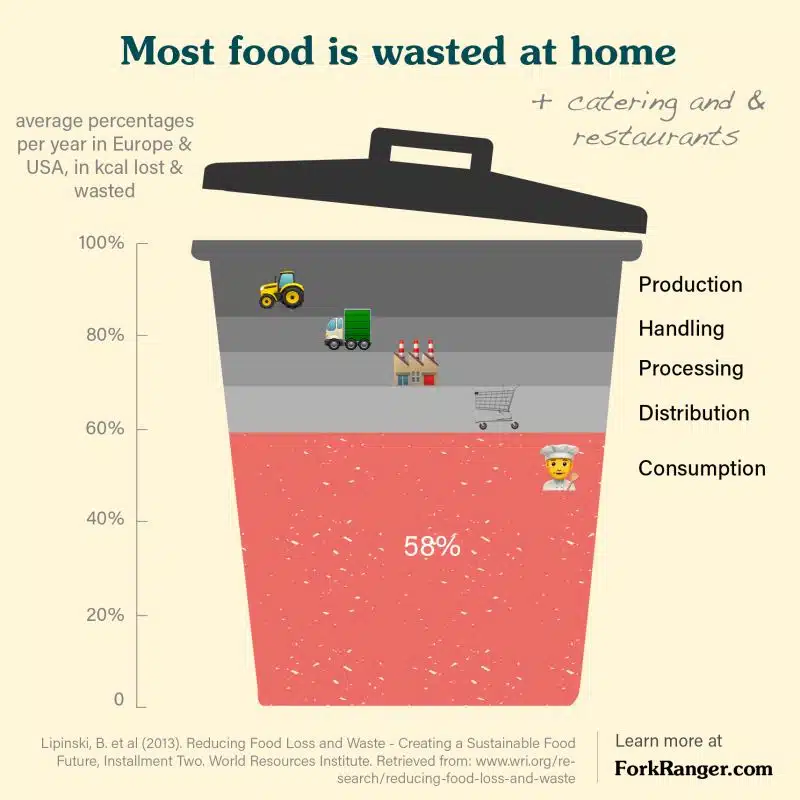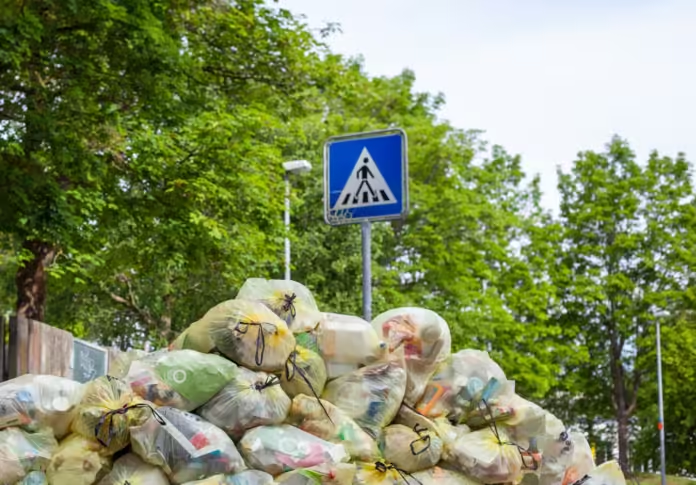As the International Day of Awareness of Food Loss and Waste took place on September 29, a community gardener in Dublin is raising awareness about the issue of food waste.
“Food waste is a massive global challenge that affects both rich and poor countries. The world produces enough food to feed everyone, and at the same time millions of people suffer from hunger. Each year, nearly 1 billion tonnes of food are wasted. This is crazy, and has to stop,” said Lee Geoghegan, community garden manager at Global Action Plan Ireland.
Blanchardstown native Lee Geoghegan is the Garden Manager for the GLAS community garden in Blanchardstown. In that role, he supports members of the local community to connect with other people and with nature.
An alumnus of TU Dublin’s horticulture course, Lee has been a solid part of the local community of Dublin 15 for many years. He has assisted in the local primary school and church with various horticulturally related projects, and has been a pivotal part of the local community centre. He has experience working within the grounds of Áras An Uachtaráin, growing a wide variety of organic produce.
“On 29 September each year, the United Nations asks us to reflect on the terrible waste of resources, and the damage we are doing to the environment, due to food waste. And we believe that we can help tackle this problem if we encourage people to grow more of their own food,” said Geoghegan.
“Home-grown food reduces the need for packaging and transportation. On top of that, people who grow their own food can harvest only what they need, so they are not buying too much food, and throwing it out.”
Lee has a passion for growing organically. In addition to being a gardener for the charity Global Action Plan he also has an allotment site which he and his family have managed to develop into a haven of organic produce. His mission at GAP is to help educate people about the power of local food production. In the community garden that he manages, he hosts workshops on organic horticulture, giving people tips on growing food, even if they only have a small balcony.

A call to action
According to the Environmental Protection Agency (EPA), Irish households threw away 220,000 tonnes of food waste in 2022, costing an average household €700 annually. Globally, more than one-quarter of food produced is wasted.
To mark the International Day of Awareness of Food Loss and Waste, Lee’s organisation, GAP Ireland, is urging everyone to consider the role they can play in reducing food waste, whether by growing their own food, planning meals more carefully, or advocating for sustainable practices in the food industry.
“Food waste is not just a social or economic issue; it is a major contributor to climate change,” said Hans Zomer, CEO at GAP Ireland.
“Food waste accounts for 8-10% of total greenhouse gas emissions. Addressing food waste is therefore a critical part of global efforts to reduce greenhouse gas emissions and combat climate change. And given that much of the food waste in Ireland occurs in households, we feel it is important to highlight that better food planning, and changing our kitchen habits, can lead to meaningful reductions in greenhouse gas emissions,” stated Zomer.
Food waste arises for various reasons, from overproduction and improper storage to aesthetic standards that discard ‘imperfect’ food.
“If people learn to grow their own food, they also change the way they think about food,” said Lee Geoghegan.
“Something strikes a chord within the soul of those who grow their own produce. The result is a real sense of responsibility in relation to food waste and soil health, which further enhances our connection with the natural world,” said the community gardener.
“Composting is a fabulous way of achieving that, as one can create a nutrient rich soil amendment from both kitchen and garden waste, that can be utilised in the garden year on year. What an achievement it is to make compost from your own waste. You now know exactly what it contains, plus it has zero road miles – what a great way of completing the cycle! For me, reducing food waste really does start at home,” said Geoghegan.








